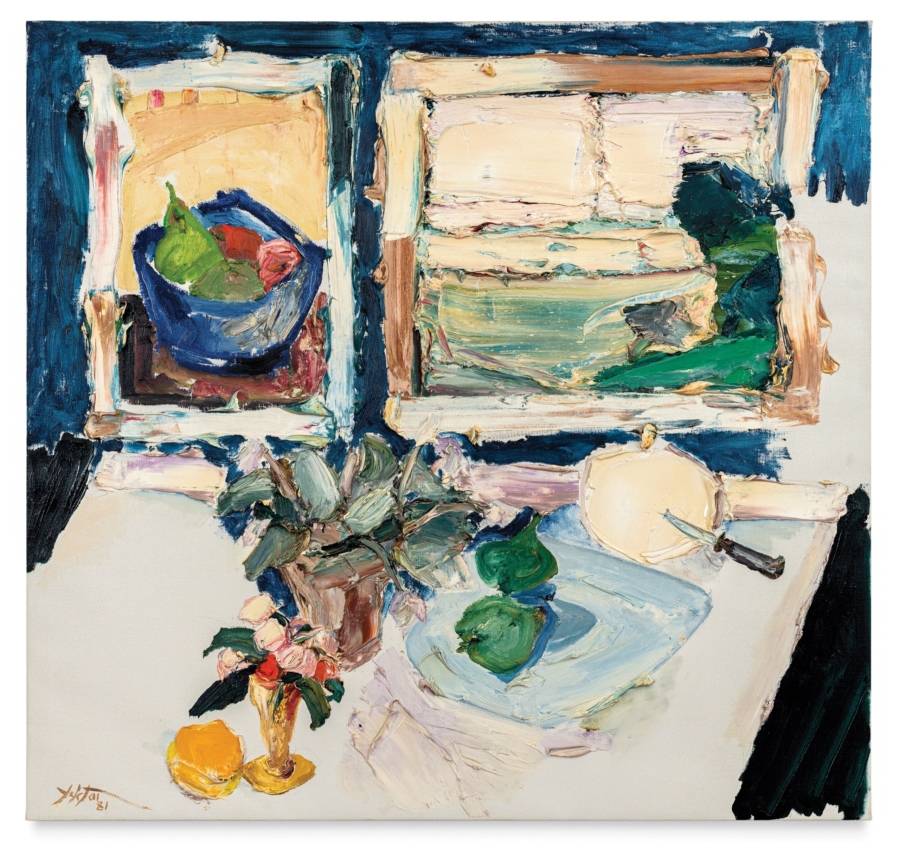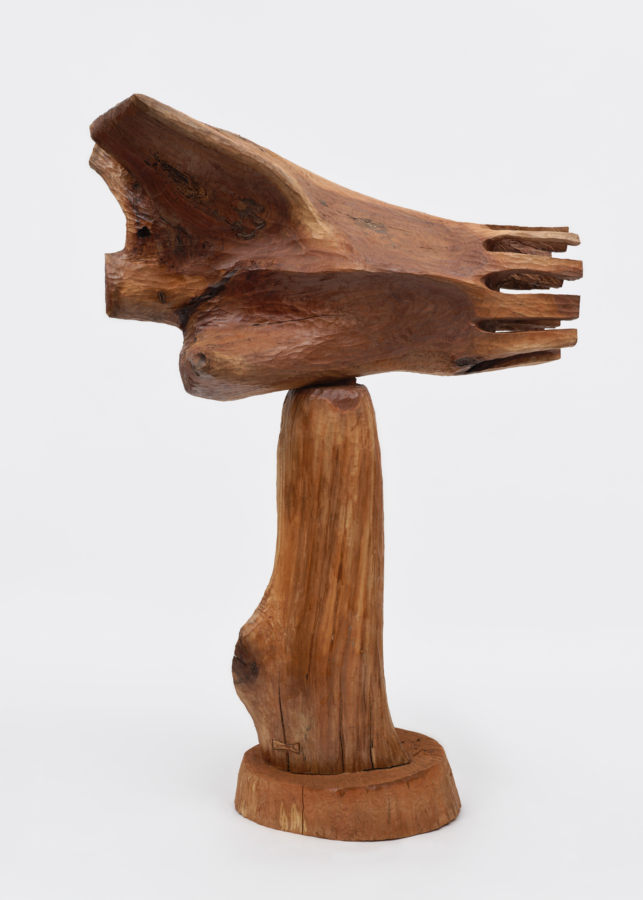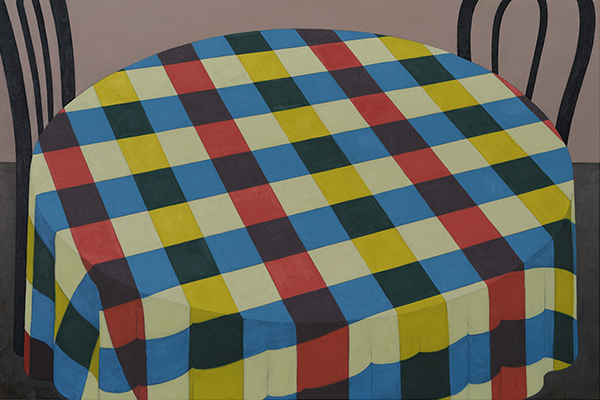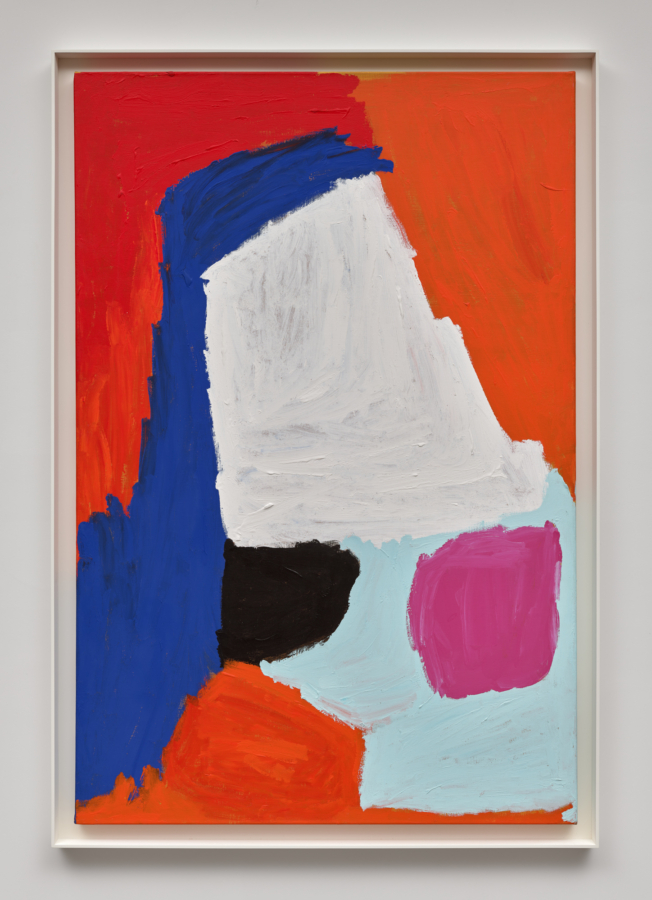October 22, 2021
Download as PDF
View on The New Yorker

Art work by Manoucher Yektai / Courtesy the Manoucher Yektai Estate and Karma
Forty years after his last show in New York City, the Persian American painter and poet Manoucher Yektai is the subject of a striking two-gallery reappraisal at Karma (on view through Nov. 13), featuring thirty-one works made between 1958 and 2002. Yektai, who was born in Tehran in 1921, and died on the East End of Long Island in 2019, always had supreme confidence in his talent—he was welcomed into Ab Ex circles, early on—and took the decades-long lull in his career in stride. After retreating from the gallery scene, in the eighties, he used to say that he was on “the six-hundred-year plan,” referring to the centuries that it took a wide audience to embrace the Sufi bard Rumi. That bravado matches the extravagant impasto of Yektai’s canvases, which bring an action-painting intensity to bear on tranquil subjects, notably still-lifes of fruit and fragmentary landscapes (often combined, as in the untitled 1981 work above) that make no secret of his passion for Paul Cézanne. Yektai may not have suffered from what the French philosopher Maurice Merleau-Ponty called “Cézanne’s doubt,” but his works do present the act of painting as a struggle so fierce that a brush might just break off in the process and become part of the picture itself, as seen in one energetic abstraction from 1961.



